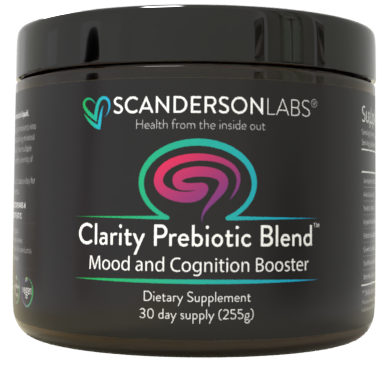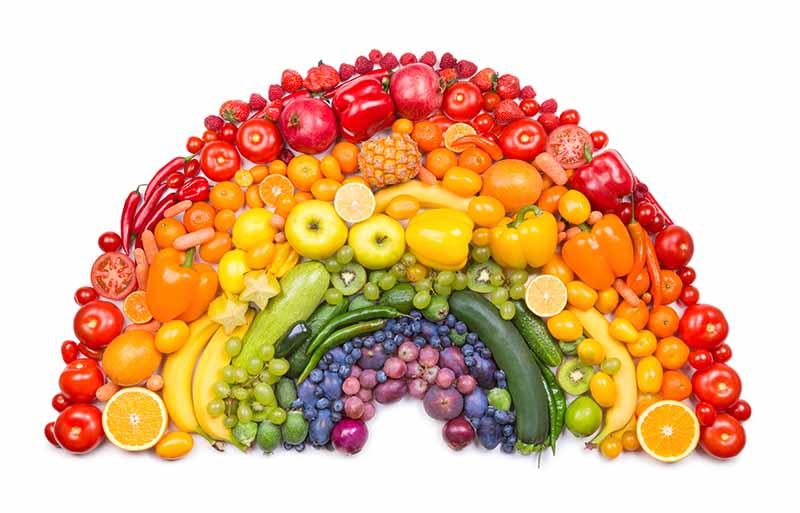Gut Microbes May Help Fight Long COVID
COVID-19 isn’t over yet, dammit. Long COVID promises to stress our health system for years to come. That’s why it’s good news that something simple and natural may help diminish this continuing pandemic nightmare.
Several research groups have discovered that gut microbes can help inhibit the growth of coronavirus as well as lessen the impact of long COVID. A group at Rockefeller University including Sean Brady and Frank Piscotta found that chemicals secreted by gut microbes can slow the spread of the virus. These chemicals are, essentially, antivirals. Remarkably, they are similar to some of the synthetic drugs developed to fight the virus, such as remdesivir, fluvoxamine, and favipiravir.
The researchers found three antiviral chemicals produced by microbes that can inhibit the growth of the coronavirus: IPA, tryptamine, and BIP. Why would gut microbes produce these metabolites? Likely because there is a continuing battle among microbes, and killing off viruses is an important part of that fight. According to the researchers, this revelation suggests that “the microbiome may be a fruitful source for the discovery of small molecules with antiviral activities.”
After many people recover from COVID-19, they may suffer from the lingering symptoms of long COVID. It is characterized by a litany of symptoms that may continue for months, including
- Fatigue
- Brain fog
- Anxiety
- Headache
- Dizziness
- Loss of smell or taste
- Insomnia
- Low mood
- Blurred vision
- Poor memory
- GI distress
- Hair loss
- Muscle weakness
The Gut–Brain Connection
This list reveals that many of the symptoms are brain-related. Researchers at Washington University School of Medicine in Saint Louis found that COVID-19 patients in general were 60 percent more likely to be afflicted with serious mental health problems. That connection goes both ways: People with mental disorders are at greater risk of developing more severe COVID-19.
These mental difficulties also correlate with gut issues like diarrhea and irritable bowel syndrome (IBS), implying that the gut–brain axis plays a role in these complications of COVID-19. That view is supported by research from the Chinese University of Hong Kong, which found that patients with long COVID had a less diverse gut microbiota than those who didn’t. They also had more pathogens. In particular, they found that people with long COVID had higher levels of Ruminococcus gnavus, Clostridium innocuum, and Bacteroides vulgatus.
On the other hand, people who escaped long COVID had beneficial immune-modulating bacteria including Bifidobacterium pseudocatenulatum, Faecalibacterium prausnitzii, and Roseburia inulinivorans. These beneficial microbes are associated with increased levels of butyrate, a short-chain fatty acid that acts to nourish and heal the cells lining the GI tract.
Intriguingly, Ng and colleagues found that specific long COVID symptoms were associated with specific bacteria. For instance, Clostridium innocuum and Actinomyces naeslundii were positively correlated with mental problems, while Roseburia inulinivorans and Faecalibacterium prausnitzii were negatively associated with hair loss. Based on these observations, the researchers believe that microbiota profiling might be a useful tool for predicting which patients will go on to suffer long COVID and what their unique symptoms might be.
The Gut–Lung–Heart Connection
An unexpected finding was a connection between the gut and the lungs. Patients with persistent respiratory problems also showed an increase in gut pathogens including Streptococcus anginosus, Streptococcus vestibularis, Streptococcus gordonii, and Clostridium disporicum. But how do gut microbes affect the lungs?
One possibility is that a poorly balanced gut microbiota can make the gut leaky enough to allow bacteria to enter the circulatory system. The heart then pumps these microbes to every tissue in the body, setting up systemic inflammation. That can affect the lungs as well as other organs—including the brain and the heart. And, in fact, the heart also may have problems in long COVID, affecting some patients for an entire year after infection.
What to Do
Vaccinations and boosters are a time-honored way to fight viruses. Modern vaccines, especially the mRNA versions, are successful medicines to mitigate COVID-19. But if you want even more protection, it can’t hurt to improve your gut microbes. In fact, preliminary research by Ng indicates that well-balanced gut microbiota can enhance the response to the vaccine. Many of these COVID-19–fighting microbes are psychobiotics with antidepressant and anti-anxiety properties, so they may even improve your mood.
Although most of the specific microbes identified in these studies are not available in any existing probiotic formulation, boosting the levels of bifidobacterial species can calm the immune system and may ease symptoms of long COVID. Bifidobacterium longum is a common ingredient in most probiotics and is also a major constituent of yogurt and other fermented foods like sauerkraut and kimchi.
Another way to increase the diversity of your gut microbiota is to eat a wide variety of fiber-rich foods like beans, lentils, artichokes, onions, and leeks. Fruits and vegetables should be at the top of your list since meat contains no fiber. Fish, however, contains omega-3 oils that are anti-inflammatory.

BUY ON AMAZON
If you can’t manage to consume enough fruits and vegetables, you might try prebiotics. The advantage of prebiotics is that they can support a wide variety of beneficial bacteria that already live in your gut. Also useful are polyphenols and flavonoids. These are plant nutrients that have prebiotic effects, as well as being antioxidants that can directly protect and heal gut tissue.
Exercise also plays a major role in lowering inflammation and improving the balance of gut microbes. Weightlifting and other muscle-building exercises are important because amino acids can be readily recruited from muscle tissue to help fight viral and bacterial diseases. Make sure that you talk to your physician before you undertake any new exercise regimens. Some long-COVID patients also experience post-exertional malaise (PEM). Exercise may be harmful for them, so pay attention to your body and don’t overdo it.
Coronaviruses gain entry to cells by attaching to ACE2 membrane receptors. ACE2 receptors are found in the lungs—explaining the respiratory aspects of the disease—but they are also found in the gut. And because the gut has an impact on all body organs, including the brain, it makes sense that COVID-19 would have these knock-on effects on mental health.
Our gut microbiota is at the core of health and resilience and one of the few organs directly under our control. That puts a big part of the solution into our own hands because we can easily modify our diet to improve our gut microbiota.
References
Piscotta, F. J., Hoffmann, H.-H., Choi, Y. J., et al. “Metabolites with SARS-CoV-2 Inhibitory Activity Identified from Human Microbiome Commensals.” MSphere, December 1, 2021.
Liu, Q., Wing Yan Mak, J., Su, Q., et al. “Gut Microbiota Dynamics in a Prospective Cohort of Patients with Post-Acute COVID-19 Syndrome.” Gut 71, no. 3 (March 1, 2022): 544–552.
Xie, Y., Xu, E., Al-Aly, Z. “Risks of Mental Health Outcomes in People with Covid-19: Cohort Study.” BMJ 376 (February 16, 2022): e068993.



